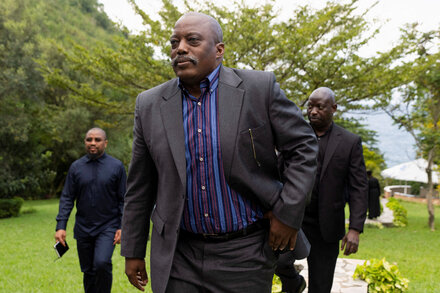The United States has announced its intention to revoke the visa of Colombian President Gustavo Petro, a move that signals a significant downturn in diplomatic relations between the two nations. The decision, confirmed by U.S. officials on Friday, comes after repeated warnings regarding President Petro’s increasingly vocal and critical stance on the Israeli-Palestinian conflict.
While a specific and immediate trigger for the revocation was not officially detailed, sources familiar with the discussions indicated that President Petro’s recent actions and rhetoric, particularly his strong condemnation of Israeli military operations and his outspoken support for a Palestinian state, were central to the U.S. determination.
Background to the Decision
President Petro, Colombia’s first leftist leader, has been a prominent critic of Israel’s actions in Gaza, frequently comparing them to genocidal acts and drawing parallels to historical injustices. His government has taken steps such as suspending arms purchases from Israel and initiating moves to cut diplomatic ties, drawing strong rebukes from both Israeli and U.S. officials.
“We have consistently communicated our concerns to the Colombian government regarding statements and actions that we believe undermine efforts for peace and stability in the region,” a U.S. State Department spokesperson said, speaking on condition of anonymity due to the sensitivity of the matter. “The decision to revoke a visa is not taken lightly and reflects a culmination of these ongoing concerns, impacting an individual’s eligibility for travel to the United States.”
The U.S. has maintained that while it respects freedom of speech, certain diplomatic actions and sustained rhetoric can have consequences for bilateral relations, especially when perceived to contradict U.S. foreign policy objectives or to exacerbate international tensions.
Colombian Reaction and Diplomatic Fallout
The Colombian government has yet to issue a formal response, but President Petro has previously indicated he would not be swayed by external pressure regarding his foreign policy positions. Observers anticipate a strong reaction from Bogotá, potentially leading to further strain in a relationship that has historically been crucial for both counter-narcotics efforts and regional stability.
For President Petro, the visa revocation could be framed domestically as an attempt by the U.S. to silence independent foreign policy, potentially rallying support among his base. However, it also carries the risk of isolating Colombia on the international stage and complicating essential diplomatic and economic engagements.
In a recent public address, President Petro stated, “Colombia’s foreign policy will always be based on human rights and the pursuit of justice, no matter the cost. We will not be dictated by any foreign power when it comes to defending the innocent.” This statement is seen by some as a pre-emptive response to potential U.S. pressure.
The revocation could also impact U.S. efforts to maintain a united front on various geopolitical issues within Latin America, potentially emboldening other nations to adopt more independent stances on sensitive global matters.
Diplomatic analysts suggest the move represents a rare and forceful demonstration of U.S. displeasure, highlighting the perceived severity of the disagreement over the Israeli-Palestinian conflict. The immediate implications for high-level meetings and the broader bilateral agenda remain to be seen, but the action undeniably casts a long shadow over future U.S.-Colombia relations.
Source: Read the original article here.





